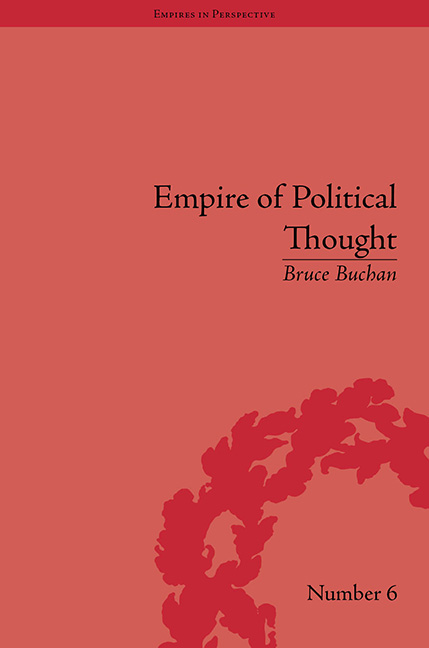Book contents
- Frontmatter
- CONTENTS
- Acknowledgements
- List of Illustrations
- Introduction
- 1 Savagery, Civilization and Political Thought
- 2 ‘Trafficking’ for Empire: Commerce, Consent and Colonization
- 3 Difficult Subjects
- 4 The Subject of War
- 5 Fit for Society
- 6 Liberalism, Self-Government and the Ethnography of ‘Primitive Society’
- Conclusion: After the Tide of History, Reconciliation?
- Notes
- Works Cited
- Index
Introduction
- Frontmatter
- CONTENTS
- Acknowledgements
- List of Illustrations
- Introduction
- 1 Savagery, Civilization and Political Thought
- 2 ‘Trafficking’ for Empire: Commerce, Consent and Colonization
- 3 Difficult Subjects
- 4 The Subject of War
- 5 Fit for Society
- 6 Liberalism, Self-Government and the Ethnography of ‘Primitive Society’
- Conclusion: After the Tide of History, Reconciliation?
- Notes
- Works Cited
- Index
Summary
Few concepts in Western political thought have been more closely entwined with the history of empire, colonization and colonial policy than ‘civilization’ and ‘savagery’. While these concepts are likely to be considered today as superannuated or unfashionable, it was not always so. In 1837 a writer in the Edinburgh Review, who was probably Herman Merivale, the then Drummond Professor of Political Economy at Oxford University, wrote that,
Savages – ‘septs of hunters and fishers’, – are of great use to political economists, as well as to political philosophers; their condition serves as a sort of zero in the thermometer of civilization, – a point from which there is a gradual rise towards perfection. They are thus very valuable in hypothetical reasoning …
Here, some ten years before he became Permanent Undersecretary of the Colonial Office and before the publication of his celebrated Lectures on Colonization and Colonies (1839), Merivale captured the conceptual significance of ‘savagery’ and ‘civilization’ in European political thought. That significance rested on their dualistic nature. Both concepts hovered uneasily between fiction and reality or, as Merivale put it, between ‘hypothesis’ and ‘condition’. ‘Savagery’ served as both a real condition of social life (exemplified by ‘septs of hunters and fishers’) and as the foundation for claims to civilization. This foundation was conceived as both historical (in the sense that progress towards civilization began in savagery) and normative (in the sense that the notion of civilization was deemed superior to savagery).
The Empire of Political Thought traces the discursive construction of ‘savagery and civilization’ in relation to Australia's Indigenous peoples from 1788 to the end of the nineteenth century. The Australian colonial context has characteristically received less attention from scholars of political thought than the more familiar Atlantic colonial heritage. Typically, Australia's colonization has been seen as an ‘exception’ to the Atlantic pattern (and to the later colonization of New Zealand) due to the absence of any treaties between the colonizers and Australia's Indigenous inhabitants.
- Type
- Chapter
- Information
- Empire of Political ThoughtIndigenous Australians and the Language of Colonial Government, pp. 1 - 16Publisher: Pickering & ChattoFirst published in: 2014



